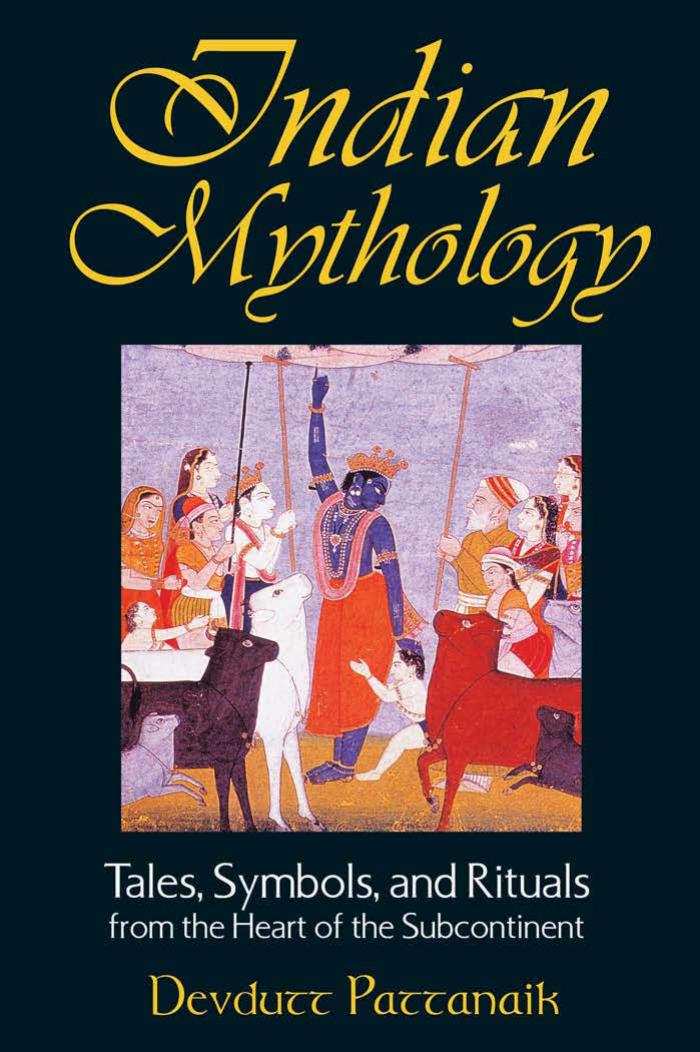Indian Mythology by Devdutt Pattanaik

Author:Devdutt Pattanaik
Language: eng
Format: mobi, epub, pdf
Publisher: Inner Traditions / Bear & Company
Published: 2012-02-13T07:00:00+00:00
MARCH OF THE VEDIC HYMNS
All Hindus accept the Veda as the foundation of Hinduism. The Veda is made up of four collections of chants known as mantras. These chants are said to be authorless, eternal, timeless, and older and greater than the gods themselves. The mantras revealed themselves to seers known as rishis. When applied to a ritual known as yagna, mantra could manipulate the very functioning of the cosmos—ensure victory in battle, transform weapons into lethal missiles, make men virile and the land fertile.
In Vedic times, kings invited rishis to perform yagnas to solve temporal problems (see Fig. 2.1). The epic Ramayana informs us that Dasharatha, king of Ayodhya, had three wives but no sons. So he invited the sage Rishyashringa to perform a yagna. At the end of the grand ritual, a being emerged from the fire altar holding a pot filled with a magic potion. “Whoever drinks from this bowl will bear you a son,” the being told Dasharatha. The king divided the potion equally between Kaushalya, his senior queen, and Kaikeyi, his favorite queen. The queens gave half their share to Sumitra, the junior queen. Consequently, the three queens gave birth to four sons. Kaushalya gave birth to Rama, Kaikeyi to Bharata. Sumitra bore Lakshmana and Shatrughna. Lakshmana was devoted to Rama, Shatrughna to Bharata.
The Vedic times were the ritualistic phase of Hinduism, the Karma Kanda, when the concept of divinity rested not in the idea of god but in the performance of ritual. The yagna was not merely the means to appease divine beings and win their favor; it was an end in itself that bestowed power even to the gods. Hence there are narratives in which even gods needed rishis to perform the yagna so that they could defeat their archenemies, the demons.
Download
Indian Mythology by Devdutt Pattanaik.epub
Indian Mythology by Devdutt Pattanaik.pdf
This site does not store any files on its server. We only index and link to content provided by other sites. Please contact the content providers to delete copyright contents if any and email us, we'll remove relevant links or contents immediately.
| Chakras | Gandhi |
| History | Rituals & Practice |
| Sacred Writings | Sutras |
| Theology |
Fingersmith by Sarah Waters(2006)
Kundalini by Gopi Krishna(1822)
The Bhagavad Gita by Bibek Debroy(1665)
Indian Mythology by Devdutt Pattanaik(1619)
Wheels of Life by Anodea Judith(1605)
The Yoga of Jesus: Understanding the Hidden Teachings of the Gospels by Paramahansa Yogananda(1523)
The Man from the Egg by Sudha Murty(1499)
Autobiography of a Yogi (Complete Edition) by Yogananda Paramahansa(1485)
Chakra Mantra Magick by Kadmon Baal(1382)
The Book of Secrets: 112 Meditations to Discover the Mystery Within by Osho(1350)
Avatar of Night by Tal Brooke(1256)
The Sparsholt Affair by Alan Hollinghurst(1242)
Sparks of Divinity by B. K. S. Iyengar(1226)
Karma-Yoga and Bhakti-Yoga by Swami Vivekananda(1218)
The Bhagavad Gita (Classics of Indian Spirituality) by Eknath Easwaran(1205)
Gandhi by Ramachandra Guha(1192)
The Spiritual Teaching of Ramana Maharshi by Ramana Maharshi(1171)
Skanda Purana (Great Epics of India: Puranas Book 13) by Bibek Debroy & Dipavali Debroy(1137)
Hinduism: A Very Short Introduction (Very Short Introductions) by Knott Kim(1115)
